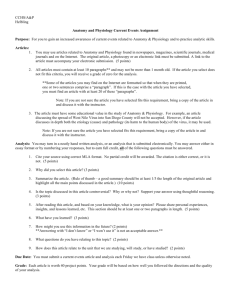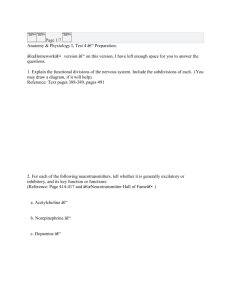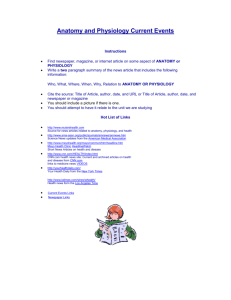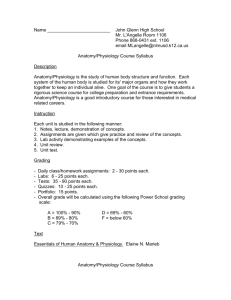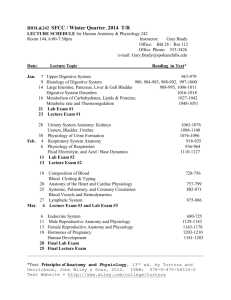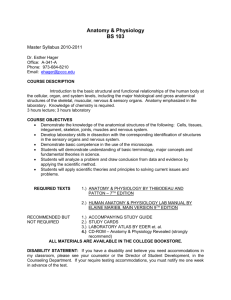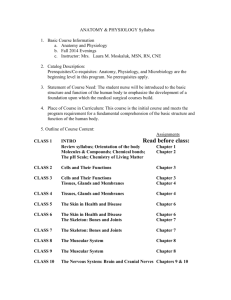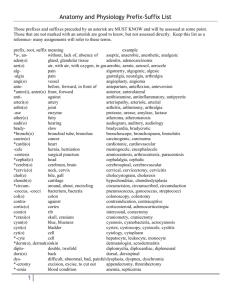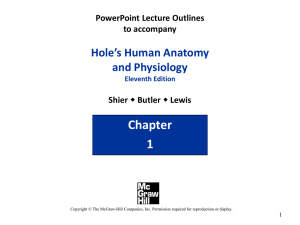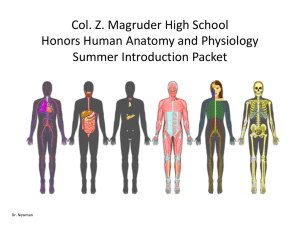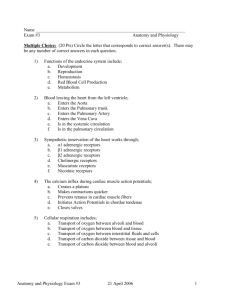Heart rate response to exercise Cardiac control centre
advertisement
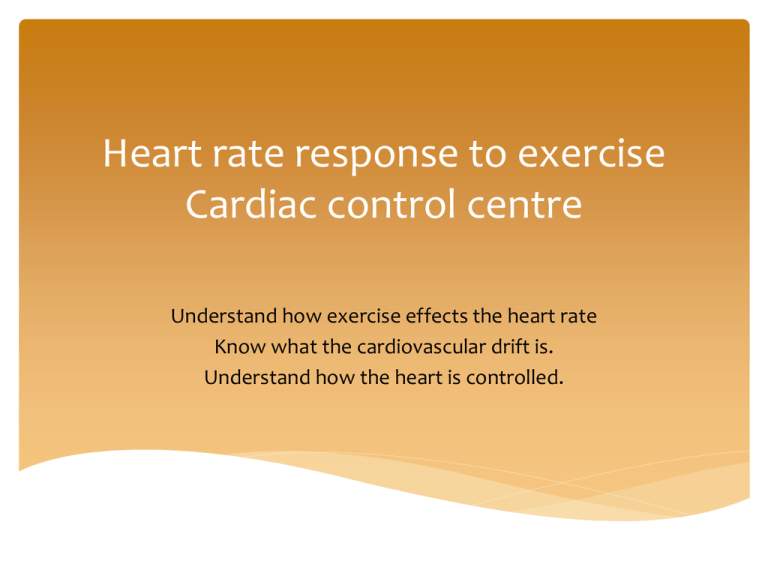
Heart rate response to exercise Cardiac control centre Understand how exercise effects the heart rate Know what the cardiovascular drift is. Understand how the heart is controlled. AS PE Anatomy and Physiology Cardiac control centre Cardiac control centre Sympathetic nervous system Parasympathetic nervous system Increases heart rate and SV Decreases the heart rate. Via accelerator nerve AS PE Anatomy and Physiology SA Via Vagus nerve Heart regulation during exercise Rule of three two one. 3 Neural factors 2 Intrinsic factors 1 Hormonal AS PE Anatomy and Physiology 1 Hormonal Adrenalin From adrenal glands Stimulates the SA node directly via blood. This increases the heart rate as well as the stroke volume. AS PE Anatomy and Physiology 2 Intrinsic Temperature Increase in temperature which speeds up the nerve impulse, which in turn speeds up the heart rate. Venous return Increase in SV (staling’s law) Increase in HR and SV AS PE Anatomy and Physiology 3 Neural Baroreceptors Baro = pressure Increase in blood pressure = decrease in HR but is neutralised due to demand of 02. Chemoreceptors Chemo = Chemical In muscle aorta and carotid arteries 1) Decrease in PH 2) Increase in pp Co2 3) Decrease in pp O2 Proprioceptors Muscle spindles, joint receptors Increase in motor activity = increase in HR and SV AS PE Anatomy and Physiology 200 180 160 140 120 100 80 60 40 20 0 Reuben Giles charlie alex kay liam george AS PE Anatomy and Physiology

